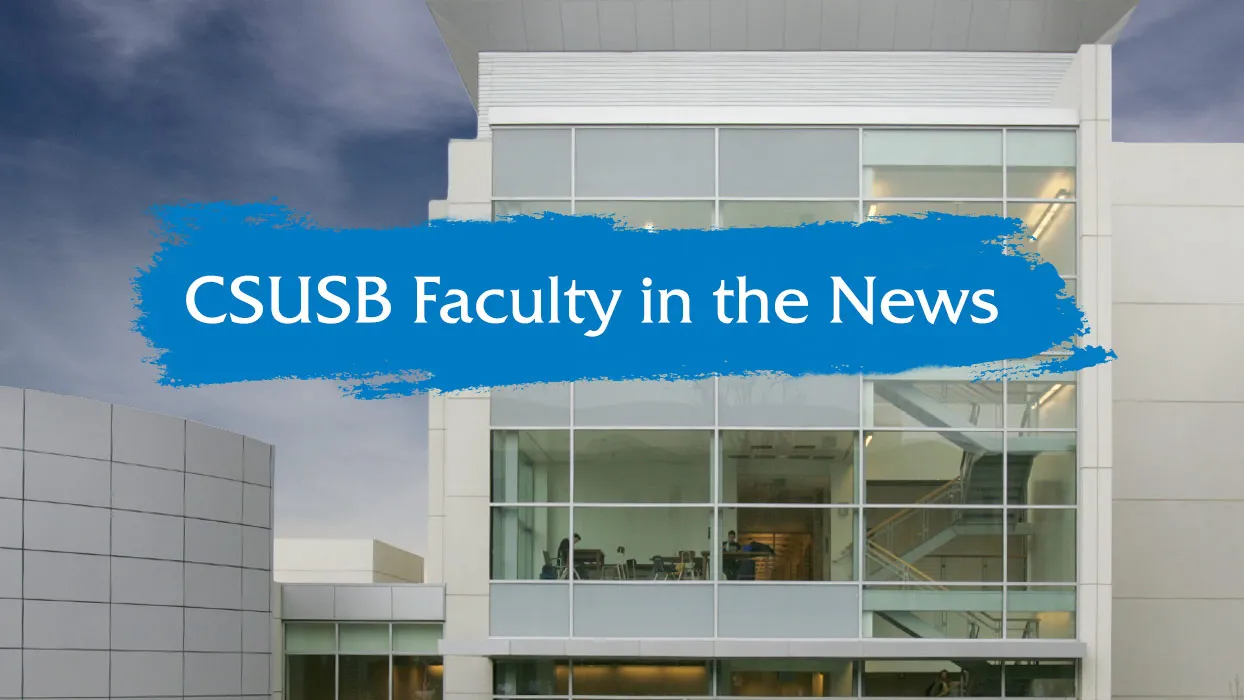NOTE: Faculty, if you are interviewed and quoted by news media, or if your work has been cited, and you have an online link to the article or video, please let us know. Contact us at news@csusb.edu.
San Bernardino shaken by magnitude 3.5 earthquake — and 3.0 quake four minutes later
Los Angeles Times
Feb. 10, 2025
Dorothy Chen-Maynard, a nutritional science expert who also teaches at Cal State San Bernardino, was in the middle of a lecture about metabolism with future dietitians when two small earthquakes shook the immediate area Monday morning. A magnitude 3.5 earthquake was reported less than a mile from San Bernardino at 9:44 a.m. followed by a magnitude 3.0 earthquake four minutes later, the USGS reported.
“Initially it felt like a jolt, then a bit of a rumble,” Chen-Maynard said. “The first (quake) was a little stronger than the second one.”
Virtual avoidance: Examining STEM students' lower interest in online courses
The Internet and Higher Education
Miranda M. McIntyre, associate professor of psychology; Geoffrey Cui, psychology alumnus; and Yunfei Hou, professor of computer science and engineering; published a study that “explores differences in online course perceptions between STEM and non-STEM students and how these perceptions influence their intentions to enroll in future online courses.”
Sustainable Urbanism-Making Indian Religious Cities Accessible
Urban Planning and Design for Megacities in the Global South
Rajrani Kalra, professor of geography and environmental studies, joined with two faculty members from the School of Planning and Architecture in Bhopal, India, to publish a study that “attempts to assess sustainable urbanism of an Indian religious city from the perspective of physical mobility of disabled visitor. The study takes Madurai in India as the city for subsequent analysis.”
Effects of closed mouth vs. exposed teeth on facial expression processing: An ERP study
Behavioral Sciences
Nicholas Brunet, associate professor of psychology, and psychology student Alexandra Ackerman, published a study that “examines the neural mechanisms underlying facial recognition, focusing on how emotional expression and mouth display modulate event-related potential (ERP) waveforms.”
The role of moral injury in the relationship between intimate partner violence and psychological distress
Journal of Interpersonal Violence
Rachel Kanter, the supplemental instruction leader for psychology, and Christina Hassija, professor of psychology and dean of the College of Social and Behavioral Science, published a study that “investigated IPV (intimate partner violence) experiences (perpetration and victimization), moral injury, and psychological distress in a sample of diverse college students.
These news clips and others may be viewed at “In the Headlines.”
